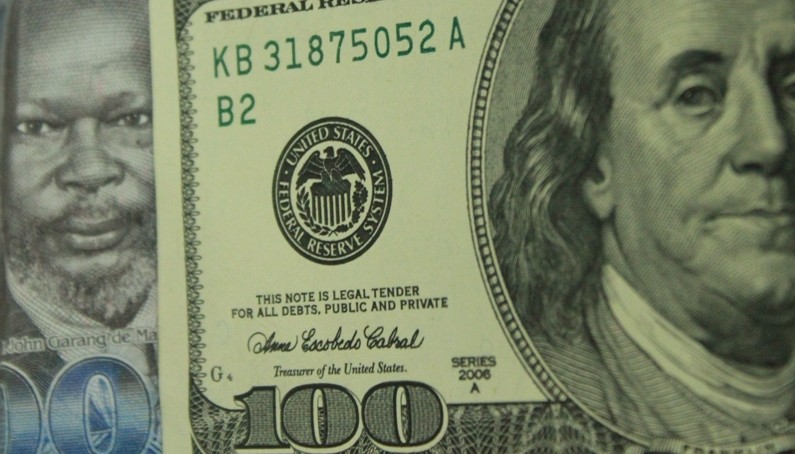JUBA, South Sudan — Prices of commodity goods have doubled over the past two months in South Sudan’s capital and across the country as the dollar exchange rate has risen from 450 South Sudanese pounds for 100 US dollars to 720 South Sudanese pounds for 100 dollars on the black market.
The chairperson of the traders union, while speaking to reporters in Nyakuron market, said that they are unable to buy dollars from the banks and Forex bureaus easily, so they resort to buying on the black market, but at a higher price, which also influences the final prices of the commodity. He urged the government to take bold action on this issue, as the increase in price is not only the traders’ problem, but is a national problem as well.
As the festive season approaches, a piece of soap which previously was sold at 1 South Sudanese pound rose to 2 South Sudanese pounds, and a kilogram of sugar, which used to be at 6 South Sudanese pounds now costs 8 South Sudanese pounds. The prices doubled amidst the ongoing conflict in the country and the falling prices of oil in the world market.
Oil has been the main revenue/income generating source for South Sudan over the past years, but its production has been diminished by the latest conflicts that have ravaged the country since Dec. 15, 2013.
The official exchange rate for the dollar at the central bank stands at 317 South Sudanese pounds for 100 dollars and the Forex bureau rate is at 319 South Sudanese pounds for 100 dollars. The Ministry of Finance had in April 2014 banned the sale of dollars on the street, but many street dollar vendors are still seen roaming around the town.
The president, in an attempt to curb the escalating prices of commodities and the dollar, sacked National Minister of Finance Mr. Aggrey Tisa Sabuni, and replaced him with the former finance minister, Mr. David Deng Athorbei, who had served as finance minister in the government of Southern Sudan in the early months of post-independence in 2011.
The national minister of finance has now issued a new directive regarding the giving dollars in bulks of about 2000 dollars and above, and also has caused the Forex bureaus to cease operations for at least one week. Banks are allowed to give dollars normally, but are cautioned to follow well-approved procedures to make sure the money does not get into the hands of the street vendors.
By Taban Ronald Setimo
